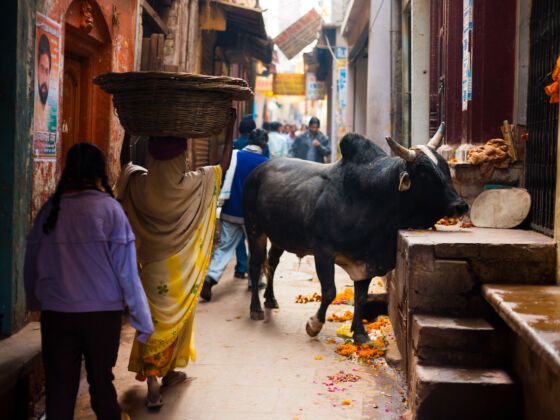The in-between moments happen between inhaling and exhaling. Between serving tea and waiting for it to cool. Between an unexpected revelation and a thoughtful response. They are heavy, pregnant moments, held private and sacred.
I spent hours lying in post-meal relaxation with my Argentine host mother, head on a pillow and fan turning above. We’d talk about my host brothers and sister, my host mother’s cooking school business, and what it was like to be a teen in the 1980s in South America. Years later, my Indian host mother, whom I’ve only ever called Aunty Ji, would lounge around with me on hot Rajasthani afternoons, telling me about the extended family, Indian or US politics and culture, and more about the extended family. These conversations did not occur while preparing dinner, while sending me and my host siblings to school, or during weekend dinners with the extended family. They occurred in the in-between moments.
